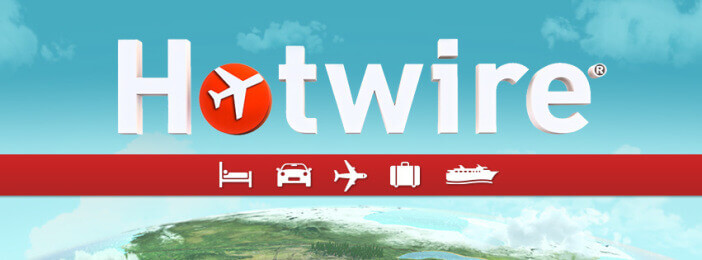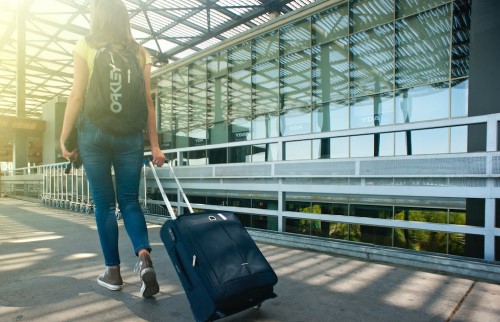Is Hotwire Legit, Hotwire is a prominent player in the online travel booking industry, offers a unique approach to securing travel deals. Known for its ‘Hotwire Hot Rate’ discounts, Hotwire provides an attractive platform for travelers seeking cost-effective solutions for hotels, flights, and car rentals.
While it presents opportunities for significant savings, users need to navigate this platform with an understanding of its distinctive model. This involves undisclosed details of bookings until purchase completion, a trade-off for lower prices. As such, navigating Hotwire safely and effectively requires insight into its workings, a strategic approach, and a consideration of the potential risks involved.
What’s in this article?
Is Hotwire Legit?
In the world of online travel booking, Hotwire emerges as a noteworthy contender. Established in 2000, Hotwire is a legitimate platform that offers discounted travel bookings, including hotels, flights, and car rentals.
It operates by selling unsold travel inventory at reduced prices, which is beneficial for both service providers and travelers seeking budget-friendly options. Their business model is based on offering ‘Hotwire Hot Rate’ deals, which typically don’t reveal specific details like the hotel name or flight times until after the booking is completed, allowing for lower prices.
Should You Book Directly or Through Hotwire?
Choosing whether to book directly or through Hotwire depends on several factors. Direct booking with hotels or airlines often provides more flexibility, especially regarding cancellation policies and specific requests.
Additionally, loyalty program members may prefer direct bookings to earn points or receive member benefits. Conversely, Hotwire is a online travel service which offer significant discounts, particularly for last-minute bookings. The trade-off typically involves less flexibility and not knowing all the details of your booking until after the purchase.

Also Read: How To Find Hotwire Hotels: Tips And Tricks For Budget Travelers
Pros and Cons of Using Hotwire
Using Hotwire for online travel bookings can offer several advantages but also come with certain drawbacks. Here’s a balanced look at the pros and cons:
Pros of using Hotwire:
- Discounted Rates: Hotwire is known for offering significantly discounted rates, especially on ‘Hotwire Hot Rate’ deals, making it an attractive option for budget-conscious travelers.
- Wide Range of Options: The platform provides a vast array of choices in hotels, flights, and car rentals, catering to different preferences and needs.
- Convenience: Hotwire’s user-friendly interface and quick booking process make it easy and convenient for travelers to plan their trips.
- Last-Minute Deals: It is particularly beneficial for last-minute bookings, offering deep discounts on unsold inventory that would otherwise remain unused.
- Bundling Options: Travelers can bundle services (like hotel, flight, and car rental) for additional savings, simplifying the travel planning process.
Cons of Using Hotwire:
- Non-Refundable ‘Hot Rate’ Deals: The deeply discounted ‘Hot Rate’ deals are typically non-refundable and non-changeable, posing a risk if plans are uncertain or change.
- Lack of Specific Details: ‘Hot Rate’ deals do not reveal specific details like the hotel name or flight times until after booking, which can be a significant drawback for those who prefer more information before committing.
7 Tips To Book Safely on Hotwire
Booking on Hotwire, like any online travel booking platform, requires a mix of savvy strategies and cautious measures to ensure a safe and satisfying experience. Here are seven tips to consider when booking on Hotwire:

Understand ‘Hot Rate’ Details:
- Familiarize yourself with the concept of ‘Hot Rate’ deals on Hotwire. These offer significant discounts but do not reveal specific details like hotel names or flight times until after the booking is complete. Make sure you’re comfortable with this level of uncertainty.
Read reviews and ratings:
- Before booking, especially with ‘Hotwire Hot Rate’ deals, read reviews and ratings of the types of hotels or services in the area you’re booking. This can give you an idea of the quality you can expect.
Check Cancellation Policies:
- Understand the cancellation policy associated with each booking. ‘Hot Rate’ deals are typically non-refundable and non-changeable, but regular bookings may offer more flexibility. Always know what you’re agreeing to.
Compare Prices:
- Make sure you’re getting a good deal by comparing prices on Hotwire with those available directly from hotels or airlines and other online travel bookings sites. This ensures you’re making an informed choice.
Use filters Effectively:
- Hotwire is an online travel service which offers various filters to narrow down your search, including location, star rating, and amenities. Use these filters to align your booking with your preferences and requirements.
Secure your payment:
- Always ensure that your payment is secure. Use a credit card for added protection, and avoid using public Wi-Fi when making your booking.
Contact customer support for clarifications:
- If you have any doubts or questions, don’t hesitate to contact Hotwire’s customer support. It’s better to clarify any concerns before completing your booking.

Also Read: Priceline vs. Hotwire: Which Is Better?
Why Booking Through Hotwire Is Cheaper Than Booking Directly?
Booking through Hotwire is often cheaper than booking directly due to its unique business model and the nature of the deals it offers. The primary reasons for the lower prices on Hotwire are as follows:
Sale of unsold inventory:
Hotwire collaborates with hotels, airlines, and car rental companies to sell their unsold inventory. These companies prefer to offer these unsold slots at discounted rates through third-party platforms like Hotwire rather than leaving them vacant. This allows Hotwire to offer these services at lower prices compared to standard rates.
‘Hotwire Hot Rate’ Deals:
Hotwire’s ‘Hot Rate’ deals are particularly discounted but come with a condition – the specifics of the booking, such as the name of the hotel or exact flight times, are not revealed until after the purchase. This level of uncertainty enables Hotwire to provide significantly lower rates. Hotels and airlines are willing to offer deeper discounts through this anonymous selling model, as it prevents the devaluation of their brand or disruption of their regular pricing structures.
Bulk Purchasing:
Hotwire may also purchase rooms, flights, and car rental slots in bulk from service providers, securing them at lower rates. These savings are then passed on to customers, making the offerings cheaper than direct bookings.
Competitive Pricing Strategy:
To attract customers, Hotwire often sets its prices lower than what one might find when booking directly. This competitive pricing strategy is a draw for budget-conscious travelers who are flexible with their plans.
Limited Interaction and Overheads:
The service operates with minimal customer-provider interaction due to the disclosure of specifics post-purchase. This streamlined process reduces overhead costs for providers, potentially leading to more cost-effective pricing for consumers.
Targeting Last-Minute bookings:
Hotwire targets last-minute travelers who are looking for quick and affordable bookings. Providers are more inclined to offer significant discounts through Hotwire for last-minute inventory, as it’s more profitable than leaving it unsold.
Also Read: How trusted is Hotwire?
FAQs:
1. What is Hotwire, and how does it work?
Hotwire is an online travel service that offers discounted rates on hotels, flights, car rentals, and vacation packages. They sell unsold travel inventory at reduced prices, providing ‘Hotwire Hot Rate’ deals where specific details of the booking (like hotel names or flight times) are revealed only after purchase.
2. Is Hotwire a legitimate and safe platform to use for online travel bookings?
Yes, Hotwire is a legitimate platform, established in 2000. It’s known for offering discounted travel options and operates with a model that benefits from selling unsold inventory from hotels and airlines.
3. How does Hotwire offer cheaper rates compared to direct bookings?
Hotwire offers cheaper rates by selling travel inventory that providers need to fill, such as unsold hotel rooms or flight seats. These rates are often lower than those available through direct bookings.
4. Can I earn loyalty points or miles when booking through Hotwire?
Generally, bookings made through third-party sites like Hotwire do not qualify for loyalty program points or miles from hotels or airlines. It’s best to check with the specific loyalty program for their policy.
5. What should I be aware of when booking ‘Hotwire Hot Rate’ deals on Hotwire?
‘Hot Rate’ deals offer significant discounts but do not reveal specific details like the hotel name or flight times until after the booking is made. It’s important to be flexible with your plans when opting for these deals.
6. What is Hotwire’s cancellation policy?
Cancellation policies on Hotwire vary based on the type of booking. ‘Hotwire Hot Rate’ bookings are typically non-refundable, while regular rate bookings follow the cancellation policy of the respective hotel, airline, or rental company.
7. How can I ensure I’m getting a good deal on Hotwire?
Compare prices with direct bookings and other online travel service sites, read the fine print, and consider the total value, including flexibility and other amenities, when assessing if a Hotwire deal is beneficial for you.
Conclusion
In conclusion, Hotwire is a legitimate option for budget-conscious travelers, offering the potential for substantial savings on hotels, flights, and car rentals. While it comes with certain limitations, such as less flexibility and the ‘Hotwire Hot Rate’ mystery element, the discounts can be quite advantageous for those willing to navigate these constraints.
As with any travel booking, it’s crucial to weigh the pros and cons, understand the terms, and use savvy booking strategies to ensure the best travel experience. Whether Hotwire is the right choice ultimately depends on individual preferences, priorities, and the nature of the trip at hand.






